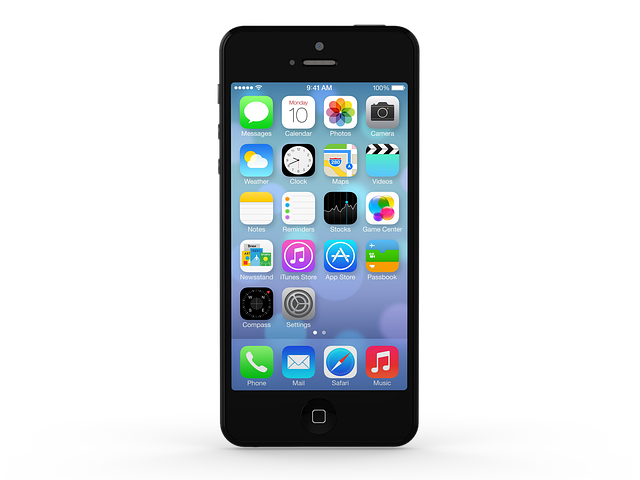In North Dakota, autodialers (ATDS) used for marketing or debt collection are governed by state laws like the NDC and federal regulations such as the TCPA. Businesses must obtain explicit consumer consent before making automated calls. Residents facing unwanted calls can consult an autodialer lawyer North Dakota to understand their rights and navigate these regulations, ensuring compliance to avoid penalties and protect business reputations. Choosing a qualified autodialer attorney North Dakota or autodialer law firm North Dakota specializing in telecommunications law is crucial for effective legal counsel.
Understanding the legal framework surrounding autodialers is crucial for Bismarck residents looking to utilize this technology effectively. This guide delves into the intricacies of autodialers and their operation, as well as North Dakota’s specific regulations. You’ll learn when using an autodialer is permissible, potential legal pitfalls, and how to choose the right autodialer lawyer or attorney in North Dakota. Key terms include autodialer law firm and autodialer attorneys North Dakota, offering a comprehensive resource for navigating this digital age tool within local legal boundaries.
What Are Autodialers and How Do They Work?
Autodialers, also known as automated telephone dialing systems (ATDS), are technologies designed to automate the process of making telephone calls. They work by randomly or sequentially generating phone numbers and placing automated calls to them, often for marketing purposes or debt collection. These devices can significantly increase efficiency for businesses but have raised concerns among consumers regarding privacy and unwanted calls.
In North Dakota, the use of autodialers is regulated by state laws and federal regulations, such as the Telephone Consumer Protection Act (TCPA). An autodialer lawyer in North Dakota, or an attorney specializing in this area, can help residents understand their rights when it comes to these automated calls. If you’re facing issues with unwanted autodialed calls, consulting with an autodialer attorney in North Dakota can provide guidance on how to navigate the legal framework surrounding these technologies and protect your rights as a Bismarck resident.
The Legal Landscape: North Dakota's Regulations on Autodialers
In North Dakota, the legal landscape surrounding autodialers is regulated by specific laws and guidelines designed to protect consumers from unwanted phone calls. The state’s regulations on autodialers are primarily governed by the North Dakota Century Code (NDC), which outlines the rules for telemarketing practices. An autodialer lawyer in North Dakota can help navigate these complex legalities, ensuring compliance with state laws.
North Dakota’s approach to autodialers emphasizes transparency and consent, giving residents control over their phone numbers. The NDC restricts the use of automated dialers for telemarketing purposes, mandating explicit consumer consent before making any sales or marketing calls. This means that an autodialer attorney in North Dakota must assist clients in obtaining valid permissions from individuals before initiating automated calls. By adhering to these regulations, businesses can avoid legal repercussions and maintain ethical practices, ensuring a harmonious relationship between companies and Bismarck residents.
When Is Using an Autodialer Legal in North Dakota?
In North Dakota, the use of an autodialer is governed by state laws and regulations aimed at protecting individuals from unsolicited telephone calls. Generally, using an autodialer for marketing or advertising purposes is legal if certain conditions are met. Specifically, businesses must obtain prior consent from recipients before placing automated calls, except in cases where there is a pre-existing business relationship or the caller has consent on file. This ensures that residents’ privacy rights are respected while allowing businesses to engage in legitimate marketing activities.
An autodialer lawyer in North Dakota can help businesses navigate these regulations and ensure compliance. If you’re an autodialer attorney in North Dakota, providing guidance on when it’s legal to use an autodialer is crucial for clients looking to avoid potential legal issues. Similarly, an autodialer law firm in North Dakota with expertise in this area can offer tailored advice to help businesses stay within the legal framework while leveraging the benefits of automated calling technologies.
Potential Legal Issues and Consequences for Improper Use
The improper use of an autodialer can lead to significant legal issues and consequences in North Dakota. Residents of Bismarck and across the state must be aware that the law strictly regulates automated calling systems, designed to protect consumers from unsolicited and unwanted calls. Violations can result in penalties and fines for businesses and individuals alike.
If you are using an autodialer for marketing or other purposes, it is crucial to seek counsel from a qualified autodialer lawyer North Dakota or autodialer attorney North Dakota. A reputable autodialer law firm North Dakota can ensure your practices comply with current legislation and help mitigate potential risks. Ignoring these legal considerations could expose you to costly litigation and damage your business reputation.
Choosing the Right Lawyer: Finding an Autodialer Expert in North Dakota
Choosing the right legal counsel is a crucial step when navigating complex laws surrounding autodialers in North Dakota. With the increasing prevalence of automated phone systems, it’s essential to find an attorney who specialises in this area. Bismarck residents should look for an autodialer lawyer or attorney with expertise in telecommunications law and experience handling cases related to auto-dialing technologies.
Reputable autodialer law firms in North Dakota will have a proven track record of successfully representing clients against alleged violations of the Telephone Consumer Protection Act (TCPA) and similar state laws. They should be well-versed in interpreting and enforcing these regulations, offering strategic advice, and advocating for your rights as a business or individual impacted by autodialer technology.






